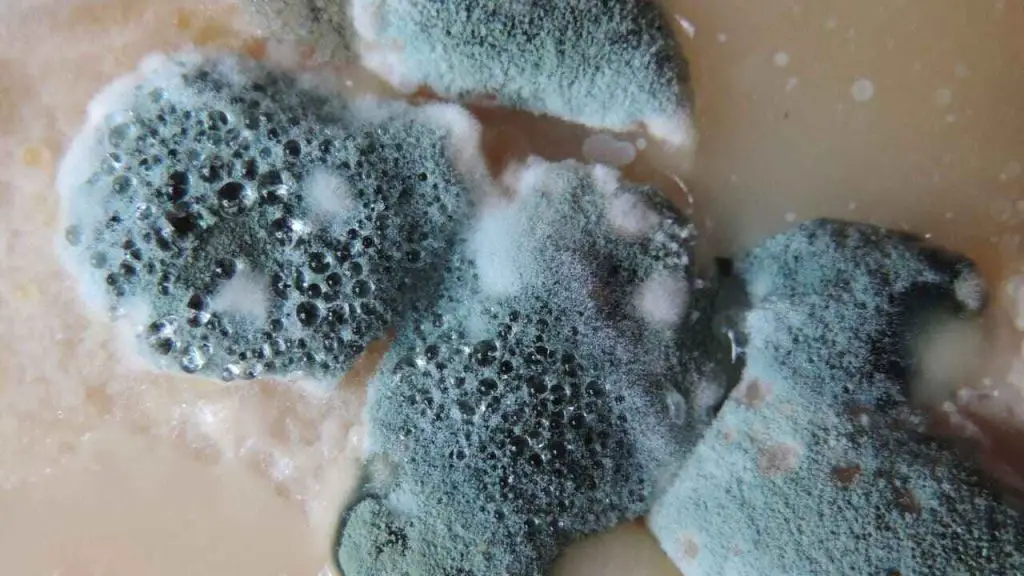You may be wondering what happens if you drink moldy water. You might be surprised to learn that mold can actually grow and thrive in water. In fact, there are many types of mold that prefer to grow in moist or humid environments.
It’s also a well-known fact that drinking water that’s been contaminated with fungus is bad for your health, but what exactly does this mean for you and your drinking water?
If you drink water, will you get sick? How can you make sure it won’t happen again? What if it’s already happened before and you don’t know it yet? These are all important questions to ask yourself if you ever suspect there could be mold growing in your drinking water. Keep reading to find out more!

What Happens If You Drink Moldy Water
If you’re worried about drinking a glass of water with mold, you’re definitely not alone. Many people who live in areas with poor water quality worry about consuming their water every day.
Fortunately, when you drink water with mold, it doesn’t immediately poison you. In fact, it can take quite a long time for symptoms to show up, which is why many people don’t even realize that they’ve been drinking water with mold in it.
However, it’s important to know that the mold in your water can cause serious health problems if you don’t treat it properly. Those health problems can be anything from an upset stomach to a serious illness that lands you in the hospital.
Why Is Mold In Drinking Water A Problem
While it may not immediately kill you when you drink it, water with mold in it is not safe to consume. A few reasons why include: Ingesting mold can cause allergic reactions and serious health problems.
High levels of mold spores in the water can cause infections in the central nervous system, lungs, and respiratory system. When mold is ingested, it can cause neurological disorders.
Drinking moldy water can lead to long-term health problems like asthma, allergies, and irritable bowel syndrome. Drinking moldy water can also cause long-term health issues like asthma, allergies, and irritable bowel syndrome.
Drinking moldy water can cause long-term health problems like asthma, allergies, and irritable bowel syndrome.
The Health Effects Of Drinking Water With Mold
If you drink moldy water, there’s a chance that you’ll develop health problems, but the severity depends on a few different factors. First and foremost, the type of mold found in the water will play a big role. Some types of mold can cause more serious problems than others.
The amount of mold spores in the water also matters more spores mean a higher risk of health problems. Additionally, you can further reduce your risk by filtering out mold spores and removing them from the water. While it’s not 100% effective, it can help reduce your risk of health problems.
How To Tell If Your Water Has Mold
Although it’s not always obvious, there are certain signs that can indicate if your water has mold. The first sign is the smell of the water. If it smells musty, moldy, or like dirt, there’s a good chance that it’s contaminated with mold.
You can also do a quick test at home using a visual inspection and a few other things you probably have around the house.
First, pour a sample of the water into a clear glass. If you see mold growing inside the glass, there’s a good chance the water has mold spores in it. Another useful test is to use a UV flashlight. If the water has mold in it, the light will shine through it.
Tips To Avoid Drinking Moldy Water
There are a few things you can do to avoid drinking moldy water. First and foremost, you should regularly monitor your water quality. If you’ve got a water filter, you’ll be able to easily see when the water quality is low, but you can also check for yourself. You can either test your water for mold spores or check for any visible signs of mold.
If you notice that your water has mold in it and hasn’t been treated, you should immediately find another source of water that’s safe to drink. If you’re unsure of where to get water, you can always call your local government authority or emergency services to ask where you can find safe water.
Conclusion
When you think about it, there are lots of potential health risks associated with consuming water that contains mold. Mold can release harmful toxins into the water, which can then be ingested by anyone who drinks it.
Ingesting mold-tainted water can lead to a host of health problems, including gastrointestinal distress, respiratory infections, and allergic reactions. So it’s important to make sure that any water you drink is free of mold contamination.
Fortunately, there are ways to avoid this problem and keep your water clean. You can keep your water filter clean, be sure to change the filters on a regular basis, and use bottled water when necessary.
By taking these simple steps, you can make sure that you and your family are drinking clean water every day.
Additional Contents:

